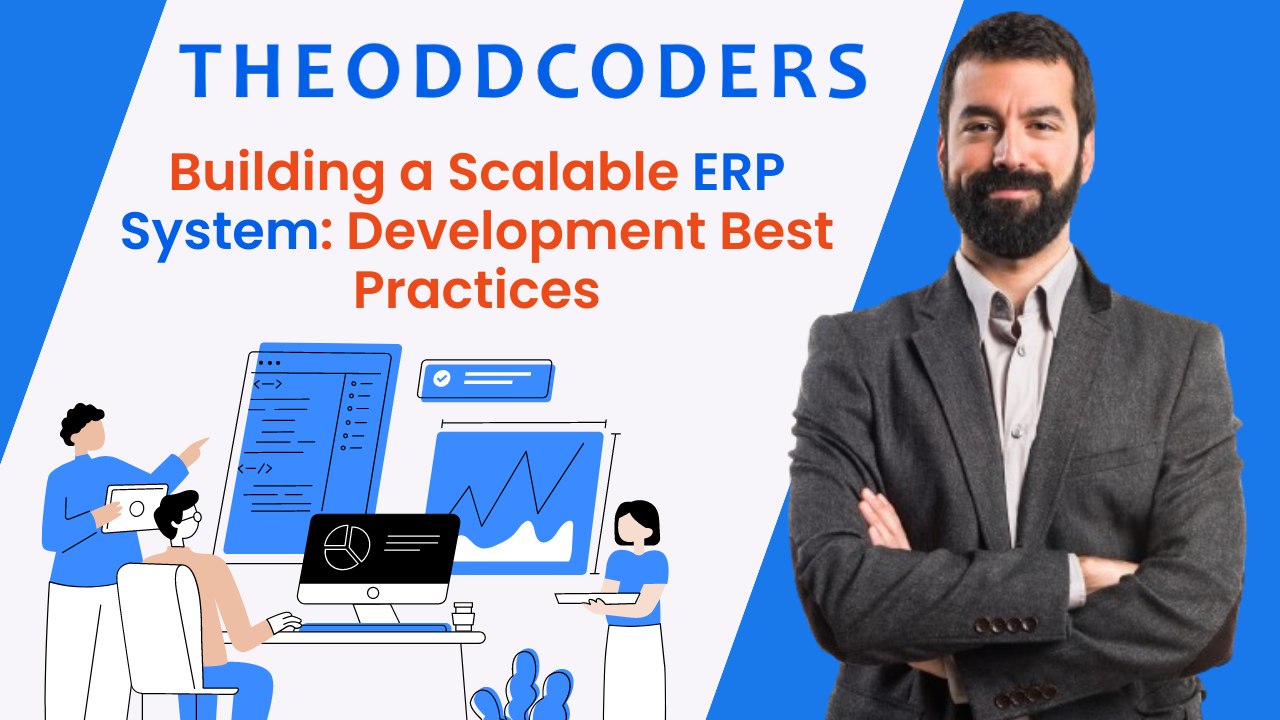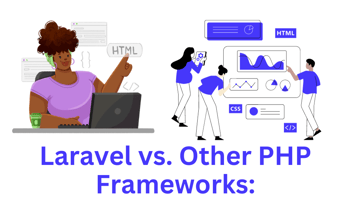In the dynamic landscape of business, small enterprises often find themselves navigating through...
Building a Scalable ERP System: Development Best Practices

In today's rapidly evolving business landscape, having a robust and scalable ERP system is crucial for success. Whether you're considering building a custom ERP solution or seeking software development services from an ERP development company, this blog post will guide you through the best practices for creating a system that truly meets your needs.
Why a Custom ERP System?
Before we dive into the development best practices, let's understand the importance of a custom ERP system. While off-the-shelf ERP solutions are available, they often come with limitations that don't align with your specific business processes. Custom ERP development offers tailored solutions that adapt to your unique workflows, increasing efficiency and productivity.
Choosing the Right ERP Development Company
For those seeking a custom ERP solution, partnering with the right ERP development company is paramount. Here's how to make an informed choice:
Assess Experience: Look for a company with a proven track record in ERP development. They should have experience in building systems similar to what you need.
Client Testimonials: Read client testimonials and case studies to gauge the company's performance. A reputable ERP development company will be transparent about their past projects.
Scalability: Ensure the company can handle your project's growth. Your ERP system should evolve as your business does, so scalability is a critical factor.
Support and Maintenance: Inquire about their post-development support and maintenance services. A good ERP system requires ongoing updates and enhancements.
ERP Development Best Practices
Now, let's delve into the key best practices for building a scalable ERP system:
Comprehensive Requirements Analysis: Begin with a thorough analysis of your business requirements. This step is crucial to ensure that your ERP system is tailored to your specific needs.
Modular Architecture: Break down your ERP system into manageable modules. This approach allows for easy updates and maintenance, as well as faster development.
Data Security: Prioritize data security from the outset. Incorporate robust encryption and access controls to protect sensitive information.
Scalability at the Core: Design your ERP system with scalability in mind. As your business grows, the system should effortlessly accommodate increased data and user loads.
User-Friendly Interface: User adoption is key to success. Create an intuitive and user-friendly interface to encourage staff to embrace the new system.
Integration Capabilities: Ensure your ERP system can seamlessly integrate with other software and systems you use. This will streamline processes and enhance productivity.
Regular Testing: Rigorous testing is essential to identify and rectify any bugs or issues. This should be an ongoing process throughout development.
Continuous Training: Provide training to your employees to help them make the most of the new ERP system. A well-trained team can maximize its benefits.
Mobile Accessibility: In today's mobile-centric world, make sure your ERP system is accessible on various devices to enable remote work and flexibility.
Monitoring and Analytics: Implement monitoring and analytics tools to gain insights into system performance and usage, allowing you to make data-driven decisions.
Software Development Services
If you're considering outsourcing the development of your ERP system, software development services can be an excellent option. These services offer expertise in various aspects of ERP development, from initial planning to post-launch support.
When seeking software development services for your custom ERP project, consider the following:
Expertise: Ensure the service provider has experience in ERP development and understands your industry's specific needs.
Development Methodology: Inquire about their development process and methodologies to ensure they align with your project's requirements.
Communication: Clear and effective communication with your service provider is essential for project success. Establish regular check-ins and reporting structures.
Cost and Timeline: Discuss project costs and timelines upfront to avoid any surprises later on. A well-defined project plan is crucial.
Flexibility: Your software development service should be flexible to accommodate changes and updates as your project progresses.
In conclusion, building a scalable ERP system is a strategic investment for any business. Whether you choose to develop a custom ERP solution or seek software development services, following best practices and partnering with the right experts will ensure that your ERP system is a valuable asset for your organization. Don't compromise on quality, and your ERP system will serve as a solid foundation for your business's growth.
READ MORE :- ERP: Discover the What’s, Why’s and How’s in This Ultimate Guide

